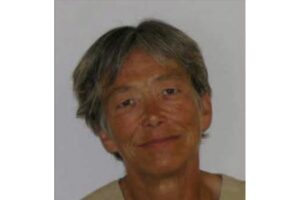NPR’s Leila Fadel talks to Tamra Truett Jerus of the Alaska Native Women’s Resource Center, about ways to draw attention to the 4,200 unsolved cases of missing and murdered Indigenous people.
LEILA FADEL, HOST:
Alejandro Pilar Vasquez, Ashley Loring Heavy Runner, Ida Beard – those are just three names on a list that the Bureau of Indian Affairs says extends to 4,200 unsolved cases of missing and murdered people. Tamra Truett Jerue is the executive director of Alaska Native Women’s Resource Center.
TAMRA TRUETT JERUE: We can’t wait anymore. This is urgent. Alaska Native and American Indian people in particular – they’re not the ones we’re seeing up, you know, on the billboards, unless the family’s paying for it. It’s a very sad testament to how we treat our Indigenous people in this country.
FADEL: Truett Jerue is also on the Not Invisible Act Commission, which created a 200-page report from the accounts they heard from families.
JERUE: It was heartbreaking. I mean, even though a person disappears, they’re still part of your heart.
FADEL: Yeah.
JERUE: And people want answers. And the systems aren’t in place to assist especially family members, to answer those horrifying questions. And so your heart and brain just continually runs a scenario that is never a positive outcome.
FADEL: Had anybody really listened before?
JERUE: I think that’s a part of it. And I think that the hope that the commission would have some impact on the things that were creating roadblocks for answers or helping to prevent it altogether – that was a huge piece of why people stepped forward and wanted to be heard. Many people talked about the lack of being heard by law enforcement. So trying to find ways for those types of agencies to communicate with families ongoing is important.
FADEL: What is or who is responsible for such a high number of unsolved killings and reports of missing persons in Indigenous communities?
JERUE: Well, that’s a pretty big answer. There’s huge jurisdictional pieces that create a myriad of responders. So who is taking responsibility if the person that you love was last seen in a jurisdiction that is not a tribal jurisdiction or in Alaska, where the Alaska State Troopers are responsible for investigating, but they have a hundred other communities they’re working with? The other end of that is these misconceptions that you have to wait 24 hours to report someone missing. And everywhere we went, law enforcement said that is not true. You do not have to wait 24 hours. Or when someone reported a missing person and they just would make comments like, well, maybe they ran away, or they’re off partying or whatever that response is but not taking the reports of missing person seriously.
FADEL: I mean, I can see that the findings – first of all, there’s no blanket answer in your recommendations, but a lot of them also seem to say law enforcement needs to take them seriously. There needs to be access to law enforcement. Families need to be heard. I mean, why isn’t that happening already?
JERUE: Good question. Why isn’t it happening already? Absolutely. Law enforcement needs to change their procedure and their attitude, but there’s a lot of work to do. Families need to be heard, and they need to be heard and responded to in a way that they may have information that isn’t being taken seriously to help in the investigation.
FADEL: Having this report out in the world for loved ones of these thousands of missing and murdered people – does it give them solace?
JERUE: My hope is yes, at least they could see that we really seriously heard them. And we want others to hear you so that we don’t have to be begging, just begging for some help to find their loved one.
FADEL: Tamra Truett Jerue directs the Alaska Native Women’s Resource Center. She’s also a member of the Not Invisible Act Commission. Thank you so much for your time.
JERUE: Thank you for having me.
Copyright © 2023 NPR. All rights reserved. Visit our website terms of use and permissions pages at www.npr.org for further information.




